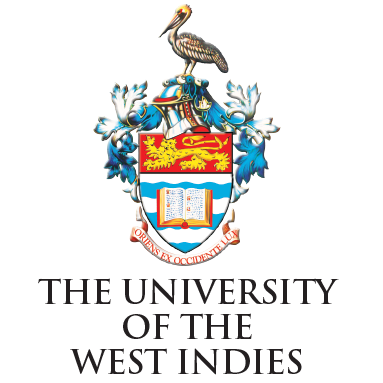
Five steps to finding effective mentors in academia
Five steps to help you find a mentor who aligns with your goals and can help you achieve academic success
Academic mentorship is a transformative relationship in which an experienced mentor guides and supports a less experienced mentee, sharing knowledge and experiences to foster growth. This relationship should be anchored in trust, respect and commitment to the mentee’s progress, and it should propel them to fulfil their potential.
Mentorship yields invaluable benefits such as knowledge transfer, skills enhancement, career guidance, networking opportunities and research support. However, finding the right mentor-mentee match can be challenging.
Here, I focus on five key steps towards fruitful academic mentorship leading to a rewarding journey of growth and success.
1. Set clear goals
Think of your academic journey like a carefully planned road trip. Just as every successful journey needs a clear destination, so do your academic pursuits. Write your goals on your academic road map and view them as critical markers of progress. Whether they include overcoming a research challenge, excelling in teaching, expanding your network or refining grant application skills, clear goals encourage you to aim for significant milestones along your career path.
Craft these goals to be SMART: specific, measurable, achievable, relevant and time-bound. See them as milestones that will propel you towards your aspirations.
2. Clarify your needs
Once you’ve set your goals, the next step is to pinpoint the necessary skills, training, expertise and guidance needed to achieve them. The required skills can vary depending on your career stage, research focus and personal situation. Junior faculty members often seek advice on tenure, publication, teaching evaluations and service roles. Boosting research productivity is a typical goal, prompting mentees to seek direction on selecting topics, refining publication strategies and building meaningful collaborations.
Being clear about your needs facilitates a more meaningful and productive mentor-mentee relationship. It ensures that your mentor is aware of how they can support you in areas that are critical to your professional growth within academia.
3. Assess your strengths and weaknesses
Once you’ve identified your needs, the next step is to assess your strengths and weaknesses so you can gauge your readiness to meet those needs and leverage your expertise efficiently. Set aside dedicated time for introspection with the aim of identifying your skills as well as areas where you need to improve.
Strategies to help you pinpoint strengths and weaknesses include soliciting feedback from peers or mentors, reflecting on past successes and challenges, using self-assessment tools such as the Myers-Briggs Type Indicator (MBTI) or StrengthsFinder, comparing your capabilities against objective criteria and considering your passions and motivations. Comprehensive self-assessment forms a strong foundation for academic growth and excellence.
Recognising weaknesses and seeking growth opportunities is key. Honest self-assessment, which you can combine with feedback from various sources such as colleagues, managers and students will help you pinpoint what you need to work on. It will enable you to align yourself with a mentor whose expertise matches your academic aspirations, enhancing the productivity of your mentor-mentee relationship.
- Resource collection: How to progress in your academic career
- How mentor and mentee can help each other
- Let’s get professional: advice for new university teachers
4. Find opportunities to network
Networking is pivotal for academic success; we are all familiar with the saying: “It’s not what you know but who you know.” Nurturing relationships with peers and faculty members opens doors to opportunities and can enrich your academic journey.
Attending conferences and workshops provides opportunities to meet potential mentors and collaborators. Make the most of them by engaging actively. Introduce yourself and tap into a wealth of knowledge. Joining and participating in professional associations and online academic communities broadens your connections and knowledge. Leverage platforms such as LinkedIn, ResearchGate and Academia.edu to connect with researchers globally, share your work and seek collaborators.
In academia, networking is not just valuable, it’s essential. By cultivating connections with the right people, you can unlock opportunities and grow your career.
5. Initiate conversations
When networking, being proactive gives you a strategic advantage. Taking the initiative to approach potential mentors demonstrates your commitment to academic growth. Do not hesitate to send that initial email or message after meeting a new connection. This could mark the start of a transformative mentorship.
Crafting a compelling introductory message is pivotal. Start with a brief self-introduction including your academic aspirations and demonstrate a genuine appreciation for the prospective mentor’s work. Point out the aspects that resonate with you. Then clearly outline your mentorship objectives, showcasing how they can guide you towards your academic ambitions. Respect their time and propose a flexible mode of communication.
When it comes to finding the right mentor, developing a strategy will pave the way for success. Start by defining precise, tangible goals to create the blueprint for your academic journey. Next, identify your unique needs and evaluate your strengths and weaknesses. Then, engage in strategic networking within and beyond the field to unlock a realm of opportunities. Finally, take proactive steps to initiate meaningful connections and kindle a transformative mentorship. Weaving together these fundamental elements, you craft a plan you can use as a compass to guide you towards academic brilliance.
Lyn R. Keith is a programme officer at the University of the West Indies.
If you would like advice and insight from academics and university staff delivered direct to your inbox each week, sign up for the Campus newsletter.




